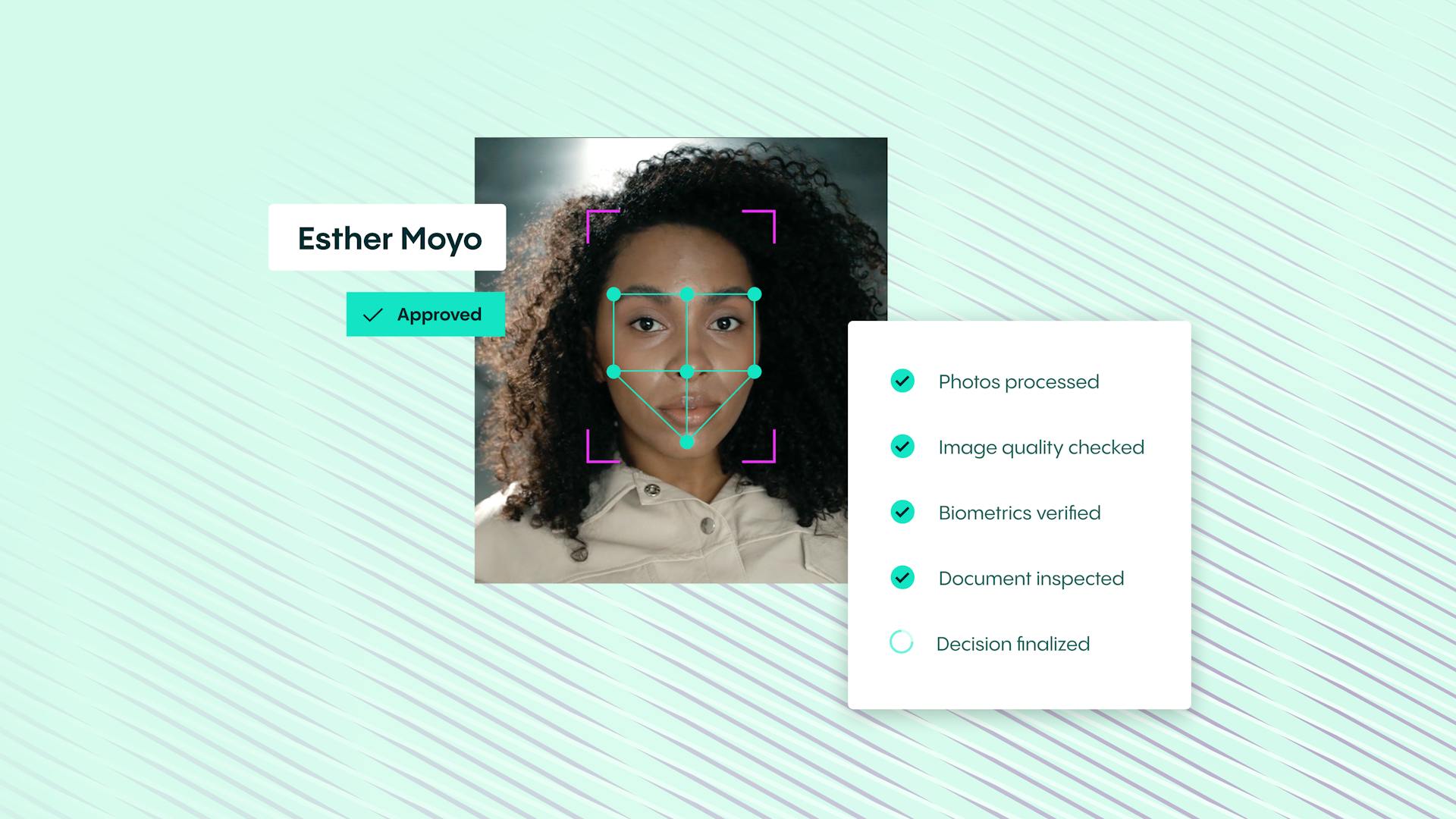Biometrics and beyond with Veriff’s Founder and CEO Kaarel Kotkas
With a global audience of 70,236 industry leaders and innovators, Web Summit 2023 gave our Founder and CEO, Kaarel Kotkas, a platform to talk about Veriff’s mission and the realm of identity verification.


Chris Hooper
In an uncertain digital landscape, Veriff is on a mission to construct a robust and trustworthy infrastructure. Here are three key takeaways from Kaarel’s conversation with the esteemed former computer hacker, magazine editor, and IT security expert Robert Schifreen on the challenges and innovations in ID verification.
"Trust and safety is the holy grail of the internet. Really, that's what we all spend our time wishing we could have and the closer we can get there, the better it will be."
There’s a new Veriff in town
If there is one thing that the future of the internet depends upon it is digital identity - proving who we are to enable individuals and businesses to interact with trust. Without this the whole system falls apart. But proving identity in the digital world is hard - and that is why Veriff has set itself the mission of building the trust instructure for the internet.
“At Veriff, we believe that trust is synonymous with verification,” Kaarel said. “Our AI-powered identity verification solutions can match someone’s digital identity with an official ID to verify they are who they say they are. This empowers businesses to provide users with services - because they can trust each user is genuine and not a fraudulent actor looking to cause harm. Even our name reflects the combination of verification with an authoritative character like a sheriff, highlighting our role in upholding laws and community guidelines in the digital world.”
"Even our name reflects the combination of verification with an authoritative character like a sheriff, highlighting our role in upholding laws and community guidelines in the digital world."
Physical security vs digital security
Once a business encounters the need to verify users online, it becomes far harder to prove those users are who they say they are. It’s very difficult for global businesses to access and store that data, for example, or train their own internal teams to recognise the difference between a legitimate document and a fraudulent one when there are more than 250 nations in the world and each has its own unique set of national identity documents (passports, driving licenses, visas and residency certificates, and ID cards, and many more). Businesses also face potentially risking their reputation or huge financial penalties if they get this it wrong. That is why partnering with a company that has expertise in this area, like Veriff, has become such an attractive option for the world’s most digitally innovative companies.
“Proving someone’s identity for compliance reasons or legal reasons, or both, is so important and it's nice and easy just to be able to outsource that and say, let's make that somebody else a responsibility,” Robert Schifreen said. “Companies do not want to have to hold all that data and don’t want to have their reputation on the line if they get it wrong.” Kareel agreed, adding: “Veriff can take that responsibility on for you and can securely verify users across the full customer journey - from onboarding, to authentication, and account recovery. We always say to leave the verification to us and let businesses to focus on what they do best.”
"Veriff can take that responsibility on for you and can securely verify users across the full customer journey - from onboarding, to authentication, and account recovery."
Customer experience at the core
It is critical to take a layered approach to identifying customers. Some businesses, such as those in financial services, are heavily regulated and require in-depth checks to satisfy KYC regulations. Others, such as video gaming or marketplaces, are less heavily regulated but may just wish to verify a user is of a certain age to access services or make certain purchase. “We tailor solutions to different risk appetites, offering a seamless onboarding experience aligned with specific use cases,” Kaarel said. “We put a major emphasis on customer experience, envisioning identity verification as a smooth process rather than a rigid checkpoint, changing it from an experience like the police stopping you car to a warm hand guiding you through.”
"There are companies who have been fined quite heavily for targeting underage teenagers and for holding information about underage teenagers, targeting advertising, and targeting products at children. So if Veriff can help companies avoid that, it would be much better."
The future of digital ID
In a rapidly changing digital world, Veriff is at the forefront of redefining identity verification and aims to build a world where trust and security seamlessly blend with user experience. Drawing parallels with trusted platforms like Airbnb and Bolt, Kaarel emphasized that trust is the linchpin for future technology and use-case growth. “We see a future where users verify their identity just once and then it is securely stored in a digital identity vault’” he said. “This will allow users to access services without having to repeatedly share their ID data and when sharing information with online platforms, only necessary details like age should be disclosed, not necessarily the entire copy of a government-issued ID.”
As we navigate the complexities of biometrics and beyond, Veriff's commitment to building a secure trust infrastructure remains unwavering.
"We are working on the digital identity solution that once you've gone through the full verification, the next time you just need to show your face [...] I believe we see the future where passports will be issued by Veriff, not only by governments."
Get the latest from Veriff. Subscribe to our newsletter.
Veriff will only use the information you provide to share blog updates.
You can unsubscribe at any time. Read our privacy terms


